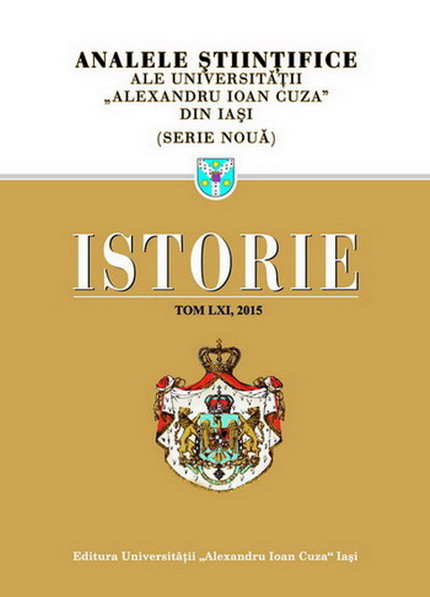Aspecte din activitatea unui diplomat român: Marcel Romanescu (1897-1955)
Aspects from a Romanian diplomat’s activity: Marcel Romanescu (1897-1955)
Author(s): Adrian VițalaruSubject(s): History, Diplomatic history, Recent History (1900 till today)
Published by: Editura Universităţii »Alexandru Ioan Cuza« din Iaşi
Keywords: Marcel Romanescu; diplomat; diplomatic corps; writer; translator; Romania.
Summary/Abstract: The main character of the present study, Marcel Romanescu, worked in the Romanian diplomatic corps for twenty-three years, from 1920 to 1943. He was not, however, one of interwar Romania’s main diplomats, as he reached the peak of his career as chargé d’affaires at the legation in Riga (Latvia). I chose the topic precisely because I wanted to analyse the professional trajectory of a diplomat who was not part of the Romanian diplomatic forefront. On the other hand, what stands out in Romanescu’s case is his intellectual profile – a speaker of many foreign languages, poet, publicist, translator and history – enthusiast diplomat. As a result of his literary activity, Marcel Romanescu is rather remembered as a poet and translator than as a diplomat, which is why the present paper’s goal is to unveil certain aspects of his activity as a diplomat. Hired in 1920 following an exam at the Ministry of Foreign Affairs of Romania, Marcel Romanesu’s career was strewn with tense moments in dealing with the ministry’s leadership due to complaints about his being promoted. Nevertheless, Romanescu stood out, at times, through the way in which he analysed certain issues, as well as his ability as a speaker of several foreign languages. This gift proved to be an asset for his diplomatic career, providing him with the possibility of working efficiently especially in Romania’s diplomatic missions from Northern Europe. In fact, Romanescu’s entire career was confined to European territory, as he worked in the missions in Vatican, Warsaw, The Hague, Madrid, Cairo, Belgrade, Copenhagen and Riga, as well as the central administration. Marcel Romanescu’s health issues, which started at the end of the 1930s, his gradual isolation in the ministry’s central administration, as well as the time he devoted to historical research at the expense of office work were factors that led to his dismissal from office in 1943. Marcel Romanescu was `an original character` (Constantin Ciopraga), a diplomat who did not manage to reach, out of various reasons, the summits of his career. Among the things that he left behind there are his initiatives to tighten the bonds between Romania and the Baltic and Scandinavian states. To be able to understand Marcel Romanescu, however, we can’t dissociate his diplomatic pursuits from his literary ones.
Journal: Analele Ştiinţifice ale Universităţii »Alexandru Ioan Cuza« din Iaşi. Istorie
- Issue Year: 2015
- Issue No: 61
- Page Range: 467-481
- Page Count: 15
- Language: Romanian
- Content File-PDF

